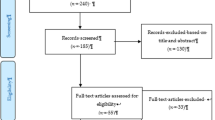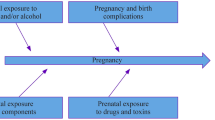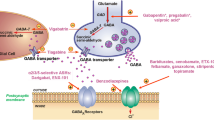Abstract
Objective
We investigated the frequency of reported sexual abuse in patients with psychogenic nonepileptic seizures (PNES) in a Middle-Eastern culture (Iran) and tried to characterize the association between a history of sexual abuse and the clinical characteristics of PNES in these patients.
Methods
In this retrospective database study, patients with PNES, who were investigated at Shiraz Comprehensive Epilepsy Center at Shiraz University of Medical Sciences, from 2008 until 2018, were studied. Patients were categorized into two groups: (1) those with a history of sexual abuse and (2) those without such a history.
Results
A total of 314 patients were studied. Twenty-six patients (8.3%) had a history of sexual abuse, while 288 patients (91.7%) denied having such an experience. Sex ratio (OR: 3.53; 95% CI: 1.14–10.89; p = 0.02) and a history of child abuse (OR: 4.85; 95% CI: 1.82–12.96; p = 0.002) were significantly associated with a history of sexual abuse.
Conclusion
Some people with a history of sexual abuse are at risk of developing PNES later in their lives. While social, cultural, and even genetic predisposition may be interacting for such an association to come to play, there is no concrete direct evidence to clarify this link yet. This should be investigated in future international cross-cultural studies and also highlights the need for planning genetic studies in patients with PNES.
Similar content being viewed by others
References
Asadi-Pooya AA, Sperling MR (2015) Epidemiology of psychogenic nonepileptic seizures. Epilepsy Behav 46:60–65
Reuber M (2009) The etiology of psychogenic non-epileptic seizures: toward a biopsychosocial model. Neurol Clin 27:909–924
Selkirk M, Duncan R, Oto M, Pelosi A (2008) Clinical differences between patients with nonepileptic seizures who report antecedent sexual abuse and those who do not. Epilepsia 49:1446–1450
Duncan R, Oto M (2008) Predictors of antecedent factors in psychogenic nonepileptic attacks: multivariate analysis. Neurology 71:1000–1005
LaFrance WC Jr, Deluca M, Machan JT, Fava JL (2013) Traumatic brain injury and psychogenic nonepileptic seizures yield worse outcomes. Epilepsia 54:718–725
Bowman ES, Markand ON (1996) Psychodynamics and psychiatric diagnoses of pseudoseizure subjects. Am J Psychiatry 153:57–63
Westbrook LE, Devinsky O, Geocadin R (1998) Nonepileptic seizures after head injury. Epilepsia 39:978–982
Barry E, Krumholz A, Bergey GK, Chatha H, Alemayehu S, Grattan L (1998) Nonepileptic posttraumatic seizures. Epilepsia 39:427–431
Baslet G (2011) Psychogenic non-epileptic seizures: a model of their pathogenic mechanism. Seizure 20:1–13
Alper K, Devinsky O, Perrine K, Vazquez B, Luciano D (1993) Nonepileptic seizures and childhood sexual and physical abuse. Neurology 43:1950–1953
Reuber M (2008) Psychogenic non-epileptic seizures: answers and questions. Epilepsy Behav 12:622–635
Oto M, Conway P, McGonigal A, Russel AJ, Duncan R (2005) Gender differences in psychogenic non-epileptic seizures. Seizure 14:33–39
Asadi-Pooya AA, Emami Y, Emami M (2014) Psychogenic non-epileptic seizures in Iran. Seizure 23:175–177
Wang Q, Shelton RC, Dwivedi Y (2018) Interaction between early-life stress and FKBP5 gene variants in major depressive disorder and post-traumatic stress disorder: a systematic review and meta-analysis. J Affect Disord 225:422–428
Boeckle M, Liegl G, Jank R, Pieh C (2016) Neural correlates of conversion disorder: overview and meta-analysis of neuroimaging studies on motor conversion disorder. BMC Psychiatry 16:195
Gavranidou M, Rosner R (2003) The weaker sex? Gender and post-traumatic stress disorder. Depress Anxiety 17:130–139
Myers L, Perrine K, Lancman M, Fleming M, Lancman M (2013) Psychological trauma in patients with psychogenic nonepileptic seizures: trauma characteristics and those who develop PTSD. Epilepsy Behav 28:121–126
Thomas AA, Preston J, Scott RC, Bujarski KA (2013) Diagnosis of probable psychogenic nonepileptic seizures in the outpatient clinic: does gender matter? Epilepsy Behav 29:295–297
Blanco L, Nydegger LA, Camarillo G, Trinidad DR, Schramm E, Ames SL (2015) Neurological changes in brain structure and functions among individuals with a history of childhood sexual abuse: a review. Neurosci Biobehav Rev 57:63–69
Elton A, Tripathi SP, Mletzko T, Young J, Cisler JM, James GA, Kilts CD (2014) Childhood maltreatment is associated with a sex-dependent functional reorganization of a brain inhibitory control network. Hum Brain Mapp 35:1654–1667
Asadi-Pooya AA (2016) Psychogenic nonepileptic seizures are predominantly seen in women: potential neurobiological reasons. Neurol Sci 37:851–855
Asadi-Pooya AA (2016) Biological underpinnings of psychogenic nonepileptic seizures: directions for future research. Neurol Sci 37:1033–1038
Asadi-Pooya AA (2017) Psychogenic nonepileptic seizures: a concise review. Neurol Sci 38:935–940
Acknowledgments
This study was in part supported by the National Institute for Medical Research Development Grant (No. 971003). We also appreciate the Neuroscience Research Center, Shiraz University of Medical Sciences for supporting this study.
Funding
This study was in part supported by the National Institute for Medical Research Development Grant (No. 971003). We also appreciate the Neuroscience Research Center, Shiraz University of Medical Sciences for supporting this study.
Author information
Authors and Affiliations
Contributions
Both authors were involved in the conception, design, review process, and preparing the manuscript. Both have approved this final version and agree to be accountable for all aspects of the work.
Corresponding author
Ethics declarations
Conflict of interest
Ali A. Asadi-Pooya, M.D.: Honoraria from Cobel Daruo; Royalty: Oxford University Press (Book publication). Zahra Bahrami, M.D.: none.
Additional information
Publisher’s note
Springer Nature remains neutral with regard to jurisdictional claims in published maps and institutional affiliations.
Rights and permissions
About this article
Cite this article
Asadi-Pooya, A.A., Bahrami, Z. Sexual abuse and psychogenic nonepileptic seizures. Neurol Sci 40, 1607–1610 (2019). https://doi.org/10.1007/s10072-019-03887-3
Received:
Accepted:
Published:
Issue Date:
DOI: https://doi.org/10.1007/s10072-019-03887-3




